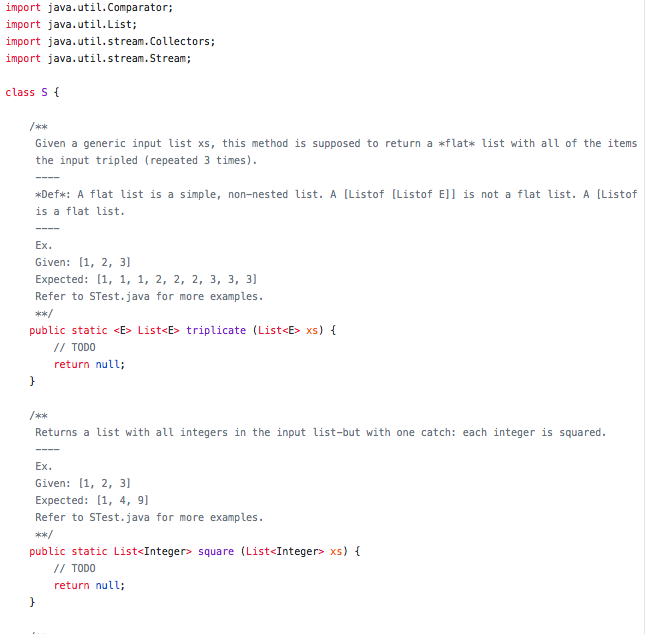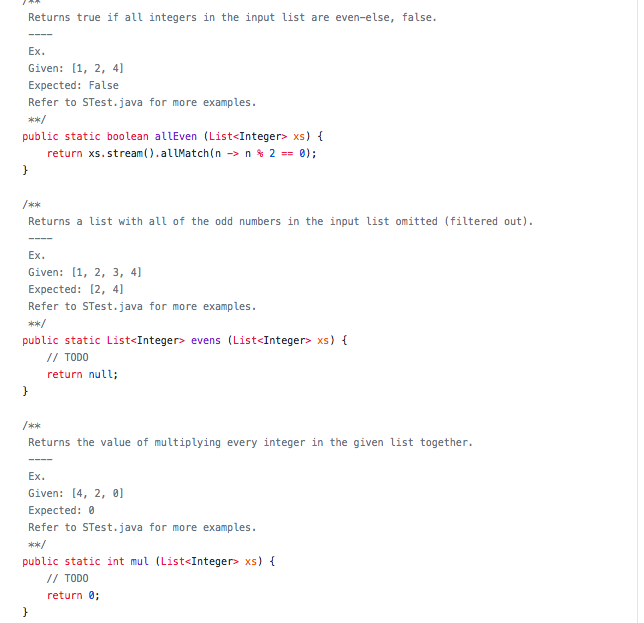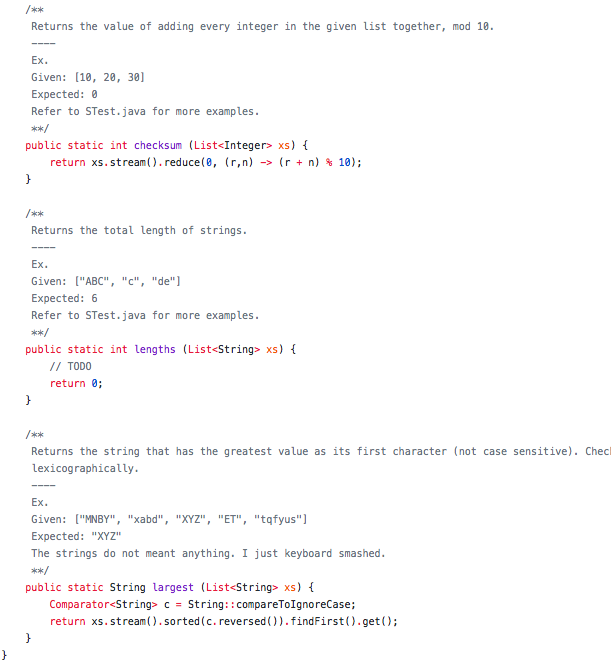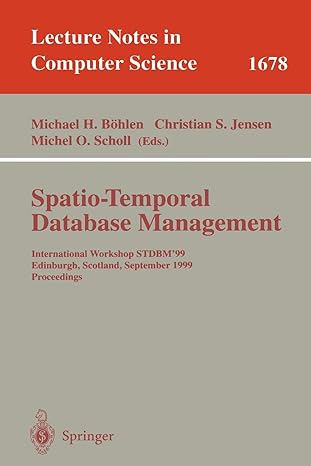


import java.util. Comparator; import java.util.List; import java.util.stream.Collectors; import java.util.stream. Stream; class S { /*** Given a generic input list xs, this method is supposed to return a *flat* list with all of the items the input tripled (repeated 3 times). *Def*: A flat list is a simple, non-nested list. A [Listof (Listof E]] is not a flat list. A [Listof is a flat list. Ex. Given: [1, 2, 3] Expected: (1, 1, 1, 2, 2, 2, 3, 3, 3] Refer to STest.java for more examples. **/ public static
List triplicate (List xs) { // TODO return null; } Returns a list with all integers in the input list-but with one catch: each integer is squared. Ex. Given: [1, 2, 3] Expected: [1, 4, 9) Refer to STest.java for more examples. **/ public static List xs) { // TODO return null; } Returns true if all integers in the input list are even-else, false. Ex. Given: [1, 2, 4) Expected: False Refer to STest.java for more examples. **/ public static boolean allEven (List xs) { return xs.stream().allMatch'n -> n % 2 == 0); } Returns a list with all of the odd numbers in the input list omitted (filtered out). Ex. Given: (1, 2, 3, 4] Expected: [2, 4] Refer to STest.java for more examples. **/ public static List xs) { // TODO return null; } /** Returns the value of multiplying every integer in the given list together. Ex. Given: [4, 2, 0] Expected: 0 Refer to STest.java for more examples. **/ public static int mul (List xs) { // TODO return; } Returns the value of adding every integer in the given list together, mod 10. Ex. Given: (10, 20, 30) Expected: 0 Refer to STest.java for more examples. **/ public static int checksum (List xs) { return xs.stream().reduce(, (rin) -> (r + n) % 10); } Returns the total length of strings. Ex. Given: ["ABC", "c", "de"] Expected: 6 Refer to STest.java for more examples. ** public static int lengths (List xs) { // TODO return; } Returns the string that has the greatest value as its first character (not case sensitive). Checi lexicographically. Ex. Given: "MNBY", "xabd", "XYZ", "ET", "tafyus") Expected: "XYZ" The strings do not meant anything. I just keyboard smashed. **/ public static String largest (List xs) { Comparator c = String:: compare To IgnoreCase; return xs.stream(). sorted(c.reversed()).findFirst().get(); }









